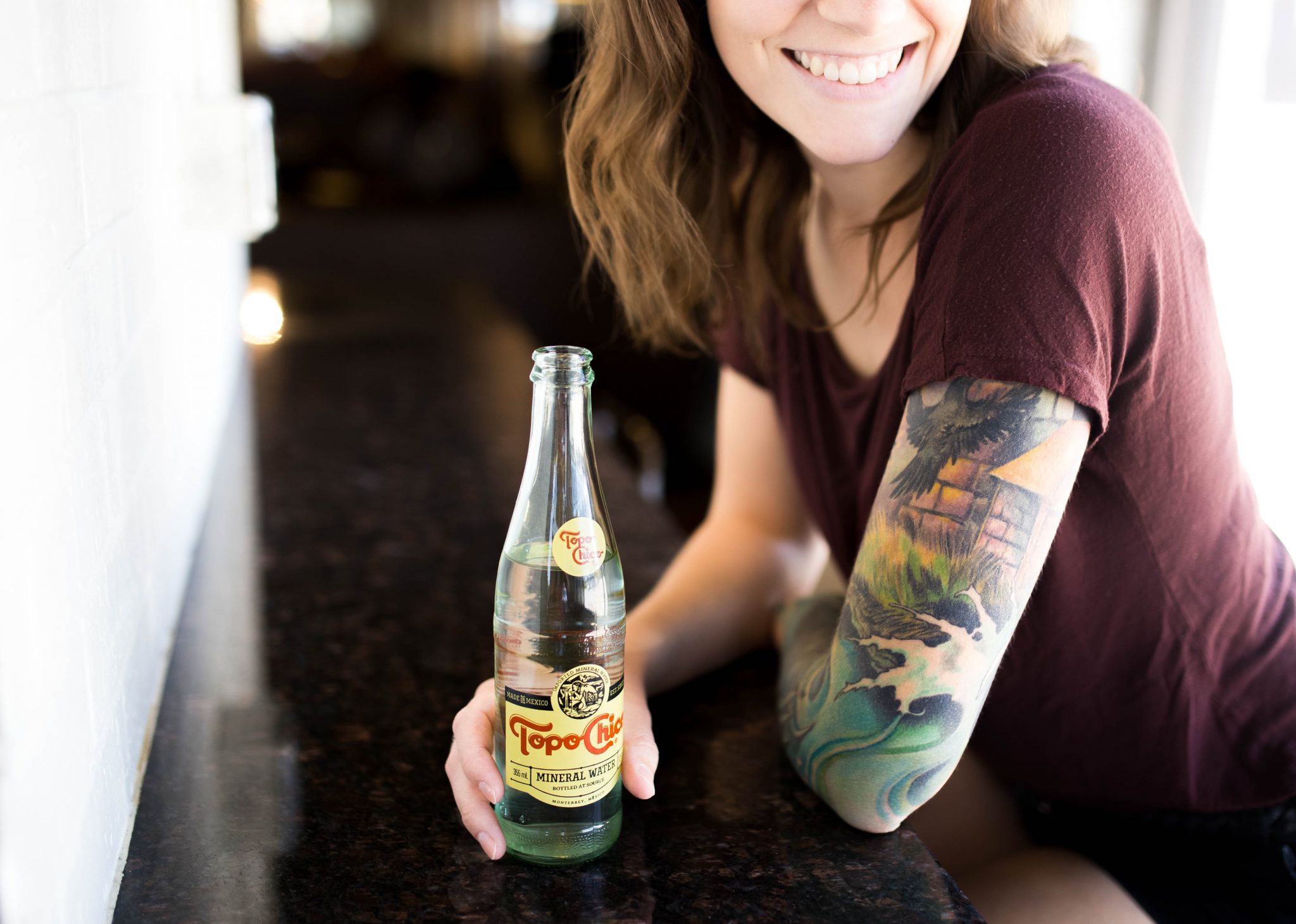Giving up alcohol isn’t always easy – especially if you’re trying to go sober for the entire month of Dry January. But these realistic tips can help.
Taking some time off from drinking alcohol can have a range of benefits for both your mental and physical health, as I recently found after I stopped drinking earlier this year. Going sober allowed me to achieve fitness goals, led me to eat more nutritious meals, and even helped to alleviate some of my anxiety.
For the sober curious, Dry January is a great opportunity to take a step back from booze in order to stay disciplined and focused on other things. In 2020, over 100,000 people signed up to the official Dry January campaign.
Even if you’re not making a permanent move to sobriety, you can still reap the benefits from taking one month off of drinking. A 2019 survey of 6,000 Dry January participants found that 86% had saved money, 70% were sleeping better, and 66% had more energy.
So, if you’re considering taking time off of drinking, here are some simple and realistic steps you can take to make it feel a little bit easier.
You may also like
Behold the world’s first non-alcoholic gin
Do your research
I like to do thorough research before jumping into a new venture, so before I stopped drinking, I consumed a fair bit of information about it first. The book High Sobriety: My Year Without Booze by Jill Stark really resonated with me and helped to reinforce my decision to stop. Ruby Warrington’s Sober Curious podcast features interesting interviews with guests about their relationship with alcohol and sobriety. I’ve also found the Facebook group Team Sober UK and the r/stopdrinking subreddit to be helpful in offering a sense of community.
Figure out your why
This is an incredibly important step – especially in social situations when you might feel pressured to have a drink. Figure out the reasons why you want to stop drinking, and keep returning to them if you feel like caving. Do you want to focus on your fitness? Are you interested in saving money? Or do you simply feel like challenging yourself? Whatever your reason, keep it in mind so that you can stay focused on your goals.
Reframe your thinking
When you stop drinking, your first inclination might be to feel as though you’re missing out on something or depriving yourself of joy. But instead, reframe your thinking and look at it as a positive experience instead. For me, it helped to think things such as “I get to wake up tomorrow feeling refreshed and clear-headed” or “I get to spend the day without any ‘hangxiety’ or regret”.

Tell your friends
If this is something that’s important to you, then it should be important to your friends too. Tell them the reasons why you’re going sober and ask for their support. Hopefully, this will mean that they won’t put any pressure on you at the pub, or it might even encourage them to try giving up alcohol too – then you can support each other.
Find another outlet
Having a drink was usually my main outlet for unwinding, socialising, and to alleviate boredom. When I stopped, I suddenly had to find other things to do when I was in those same situations. Finding a new activity to fill the time normally spent drinking is important, because if you have no other options, you’re likely to fall back into old habits.
Instead, going for a run, practicing yoga and watching mindless TV has helped me to unwind. Throwing on a podcast has also helped to alleviate boredom, while going for walks with friends has been a great way to do something social that doesn’t revolve around alcohol.
Whatever your reasons are for considering time off drinking alcohol, there’s no doubt that even a short break can do you good. If it ever feels tough, just remember that you’re doing something truly positive for your mind, body, and wallet. And, as ever, be gentle with yourself.
Follow @StrongWomenUK on Instagram for the latest workouts, delicious recipes and motivation from your favourite fitness experts.
IMAGE: Getty
Source: Read Full Article
